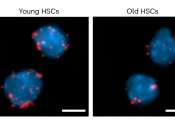'Primordial super-enhancers' provide early snapshot of the mechanisms that allowed for multicellularity
New research at the University of Chicago has found that the same machinery used by mammalian cells to drive cellular differentiation also plays a critical role in activating genes in yeast in response to environmental stress.









